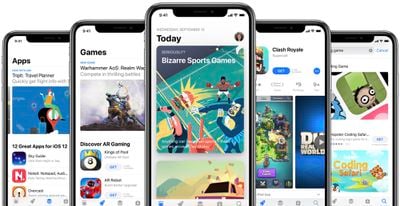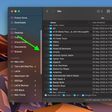Apple's App Store fees are akin to "highway robbery," Representative David Cicilline told The Verge in the latest Vergecast episode.

Cicilline, who is the Chairman of the U.S. House Subcommittee on Antitrust looking into the App Store agreements that Apple has with developers, spoke to The Verge alongside Basecamp CTO David Heinemeier Hansson, developer of the "Hey" app that Apple rejected for failing to offer in-app subscription options.
According to Cicilline, Apple's market power allows it to charge "exorbitant rents" that crush small developers. The antitrust committee has heard from "many people" afraid of economic retaliation.
"Because of the market power that Apple has, it is charging exorbitant rents -- highway robbery, basically -- bullying people to pay 30 percent or denying access to their market. It's crushing small developers who simply can't survive with those kinds of payments. If there were real competition in this marketplace, this wouldn't happen."
"Many people have come forward to share their experiences, who are terrified of economic retaliation, who are afraid they can't survive the economic retaliation that these large platforms can impose because of the power that they have, and we intend to pursue those allegations very seriously. This is a real problem in the marketplace. This is a direct consequence of enormous market power, the fact that Apple is the gatekeeper for these developers, and we have heard many, many examples."
The antitrust subcommittee began soliciting opinions from developers back in November, speaking with those who had been impacted by some of Apple's App Store decisions. Developers of parental control apps impacted last year by Apple's limitations on the use of Mobile Device Management capabilities were among those contacted, for example. Heinemeier Hansson, whose email app "Hey" is in the news this week, also testified in January.
Heinemeier Hansson has been vocal about Hey's rejection from the App Store. After approving the app earlier this week, Apple rejected two updates and told the Hey team that it needs to provide an option to subscribe in the app, which would give Apple a 30 percent cut of the subscription fee.
Hey attempted to skirt Apple's rules around subscriptions by not offering a subscription in the app while also not linking to an outside subscription offering, something that Netflix and Spotify also do. Apple said that Hey isn't classified as a "Reader" app and isn't allowed to operate in that manner, a confusing stance that blindsided the Hey team.
Heinemeier Hansson in the podcast again explains the series of rejections, and shares his opinions on Apple's App Store policies.
So if we had the power, if we have the choice to distribute software to the iPhone without going through the App Store, we would. We would just have a link on our website that said, "Here you go. That's how you download the app for the iPhone," and we'd be fine.
The problem with the iPhone is that Apple sits as a gatekeeper. It blew my mind when the EU announced their investigation because they were literally going through the points that we were having: the only way to get on the iPhone is through Apple. Apple is a gatekeeper. Apple shakes down businesses for these 30 percent, and no one has a choice.
Amid the antitrust investigation, Apple this week highlighted a study that said the App Store ecosystem supported $519 billion in billings and sales worldwide in 2019. Apple often promotes how much developers earn from the App Store, a number that has reached over $155 billion.
Apple created the hardware and the platform that allows developers to distribute apps, but Cicilline doesn't believe that entitles the company to collect such high fees. "You cannot simply allow someone merely because they invented a system or a product to continue to enjoy that kind of monopoly power," Cicilline said. "It's contrary to our laws. It's unfair to new developers, new startups, and it hurts consumers."
Cicilline says that the antitrust investigation is "nearing completion" and that a final hearing will take place in July. The committee has been aiming to get major tech CEOs, including Tim Cook, to testify. Cook has so far declined, but Cicilline says that he expects when the hearing happens, "all four CEOs" will be there. Amazon CEO Jeff Bezos, Facebook CEO Mark Zuckerberg, and Alphabet CEO Sundar Pichai have agreed to participate.
At the end of the investigation, the group will generate a report on the status of competition in the digital market, which will feature "recommendations with respect to legislative action." Cicilline believes a solution to the App Store problems will require "regulatory action and statutory changes" and that it's something that "Congress has a responsibility to fix."
The full Vergecast interview with Rep. David Cicilline and David Heinemeier Hansson can be accessed on The Verge's website.





















